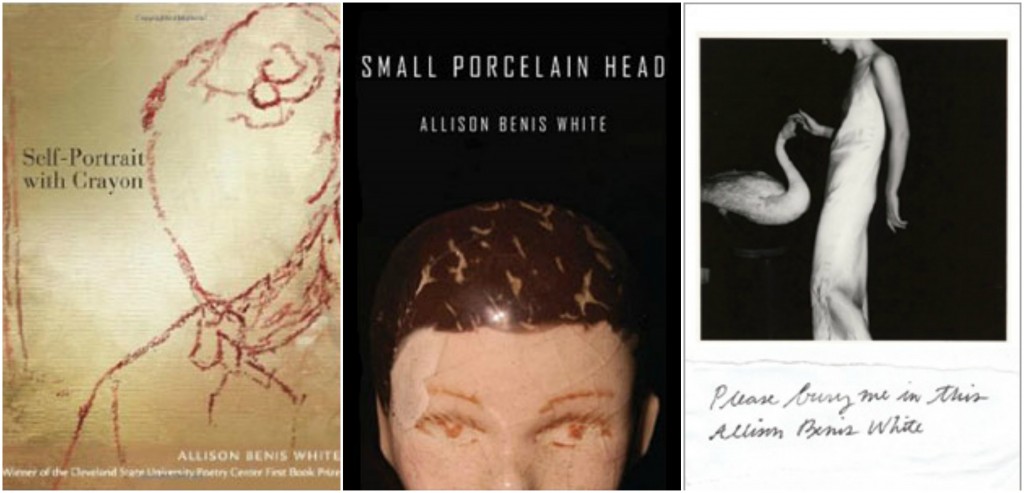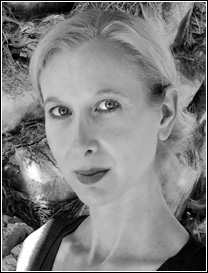Allison Benis White Wins The 2018 UNT Rilke Prize
ArtandSeek.net February 8, 2018 38Since 2012, the University of North Texas’ Creative Writing Program has recognized standout books of poetry that demonstrate exceptional artistry and vision. The UNT Rilke Prize is named after the German poet Rainer Maria Rilke (1875-1926).
It’s given to mid-career poets whose books were published in the preceding year. And along with the recognition and accomplishment of being acknowledged for a brilliant effort in writing, winners are awarded a $10,000 prize and are celebrated with events like a reception and book reading at UNT.
The university says prize winners are selected for embodying the qualities of ambition, the intellectual and imaginative scope, and the technical mastery of the poet the prize is named after. Past winners include Wayne Miller, Rick Barot, Mark Wunderlich, Katie Peterson, Paisley Rekdal and Laura Kasischke.
The winner of the 2018 UNT Rilke Prize is Allison Benis White’s “Please Bury Me in This.” It’s a book-length reflection on bereavement and the nature of language as a means of human connection.
White has authored three biographical books of poetry. Her first, “Self-Portrait with Crayon,” uses Edgar Degas’ paintings and sketches as a lens through which the book’s narrator meditates on the disappearance of her mother as a child. It received the Cleveland State University Poetry Center Book Prize.
Her second book, “Small Porcelain Head,” was a response to a friend’s suicide. She says writing it was an act of mourning and grief. White’s third book – the UNT Rilke Prize winner – continues exploring the same theme after three more of White’s friends committed suicide and her father died.

Allison Benis White’s books (left to right) “Self-Portrait with Crayon,” Small Porcelain Head,” and “Please Bury Me in This.”
I talked to White about her love for poetry, the importance of awards like the UNT Rilke Prize and more. Check out the Q&A below for some insights into the mind of this year’s winner.
Allison, you’re writing about deeply personal events in your life. I know people say, “Write what you know.” But was reliving the death of your friends and your father torture?
You know, I think that’s a reasonable question and I think that’s a reasonable assumption – that I am reliving their loss through the writing process – but for me it doesn’t feel like reliving as much as it feels like an investigation, a meditation and an articulation. And hopefully a discovery and revelation in the space of mourning and contemplating how my mind has changed and how my perception of the world has changed in response to these loses.
But it’s certainly not an act of reliving. It may be for other writers. I can’t speak for the personal process of making something for all writers. But it wasn’t reliving for me. I think it’s actually an attempt to transcend.
I like what Frost says, “No surprise for the writer, no surprise for the reader. No tears for the writer, no tears for the reader.” I like the idea – and I think it’s accurate for my work – that I’m trying to stumble into a place of discovery and revelation versus transcription of an experience or a loss.
Who is your audience and how much do you think about them?
I feel, as a poet, that the concept of “audiences” is really elusive and that’s in part because the audience is so small. And so in that sense, there is no concept of “audiences” through the lens of marketability or things like that. That’s something that a novelist might consider or a screenwriter. But a friend once said “Like a prayer, poems are written to one listener at a time.”
I think that’s really beautiful, because it does feel for me when I am writing that the reader is singular. It’s not really a group. And I think that reading poetry is such an act of intimacy for me that in writing it, I imagine the same kind of intimate concept of an audience.
But I also think that when I think about audience, that I am writing to whomever is listening.
The audience for a poem or a book of poetry probably isn’t the same as for a novel. Probably because you can’t turn poems into movies or TV shows. Why is it important to nurture the medium?
When I was a 16 years-old and I started reading and writing poetry, it was transformative. I remember reading Sylvia Plath poem ‘Tulips’ and Anne Sexton’s “Unknown Girl In A Maternity Ward” and feeling altered and transformed. I didn’t know that sort of speech was possible. It was really like finding my people and my planet when I found those poems.
So personally, it was very profound. And I hadn’t had anyone in my life that was promoting poetry to me or even expressing the value of poetry. It was a personal discovery. So I can speak to the importance of nurturing it from that point of view.
My colleague Katie Ford says that if she’s reading a poem and it isn’t saving her life, she’s moving on. And I like that brashness and attitude, because that’s my experience. The act of reading poetry saved my life psychologically, emotionally and intellectually. But I am also aware that it’s not for everyone. I was able to hear it and I was able to speak back into the same space and into that genre.
Poetry challenges readers. It asks them to come to the page. It asks readers to be present. It also attempts to articulate the complexities of being alive in a way that other art forms do, but more concisely, powerfully and without a desire to simplify or comfort in cliché ways. And I think that’s immensely important to people’s ability to connect, to empathize and to confront existential truths.
Allison, you’re the recipient of a $10,000 prize thanks to the UNT Rilke Prize. What does it mean to win and how important are prizes like this for poets?
It means a great deal. I feel recognized by people in my community that I admire. I feel incredibly grateful to have that recognition and to have this monetary prize. But honestly, more than anything, the monetary prize is a symbol of the weight and value of the award. And then to win a prize named after Rilke is personally extraordinary, because he’s incredibly important to me and other poets.
Rilke’s “Letters to a Young Poet” was a book that I cherished as a young writer and I just admire him so much. So it means a great deal to me. These awards are precious. They alert people to our work and they create opportunities for more readership.
If someone becomes interested in you and your writing because of this prize, what do you hope that they take away from your work?
If I may be so bold, I hope that they take away an experience of communion with another mind and soul. And I hope that they experience empathy and enlargement. Those are the sorts of things that I take away from reading poetry. They’re the things that I am looking for.
I guess as a writer, I am hoping that people who read my work have the same sort of transformational experiences that I have had as a reader of poetry. I think that’s the greatest hope. To be changed. To be made more. To inspire an act of change or an act of art.
Poetry – like any art – is a protest against silence, ignorance and darkness. So I hope to trigger that response.
Interview questions and answers have been edited for brevity and clarity.












